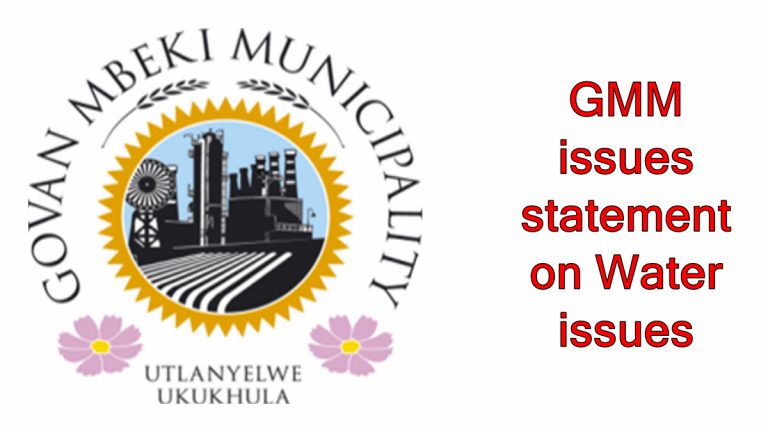
Govan Mbeki Municipality (GMM) is facing an uphill battle in supplying water to all the residents within the municipality.
Water restrictions (throttling) have now been imposed by Rand Water due to the growing debt.
On previous occasions of similar actions, Bethal bore the brunt of such action. The effect is far more widespread now than before and residents all over GMM are now voicing their anger as the municipality scrambles to manage the water supply.
The average water consumption in South Africa figures vary but the average is more than 200 litre per person per day. Chapter 2 of the Constitution of South Africa provides that: “Everyone has the right to have access to sufficient food and water.”
Studies done by the CSIR in 2015 show that the average South African suburban family of 4 uses 300 litres per person per day. Read the full report HERE
EDC tanks say on their website that the average water consumption in South Africa is 233 litres per capita per day compared to a world average of 173.

So how much fluid does the average, healthy adult living in a temperate climate need? The U.S. National Academies of Sciences, Engineering, and Medicine determined that an adequate daily fluid intake is: About 15.5 cups (3.7 litres) of fluids a day for men. About 11.5 cups (2.7 litres) of fluids a day for women. Read the report HERE
GMM issued a formal statement in this regard
WATER SUPPLY INTERRUPTION WITHIN GOVAN MBEKI MUNICIPALITY
The Govan Mbeki Municipality would like to issue a formal statement regarding the continuous water disruptions within the municipality as a result of various causes, chief amongst the other causes is the Rand Water throttling as per their media statement issued on the 06th of November 2020 which confirms that a further 20% reduction was going to be implemented from the 09th of November 2020 as a result of the outstanding debt of R314 million, meaning therefore that water supply is at 60%.
This throttling has impacted negatively on the supply of water to the communities of Embalenhle, Leandra, Kinross, Evander, Secunda, Trichardt and Bethal/eMzinoni, high-level areas are largely affected by this throttling.
As part of intervention, a repayment proposal was submitted to Rand Water on the 24th of August 2020 which has since been declined. However, the GMM management met with Rand Water on the 12th of November 2020 wherein it was resolved that a follow up meeting will be held on the 19th of November 2020.
Over and above the water throttling is the matter of vandalism on various pump stations which worsen the situation as water cannot be pumped in and out of the water reservoirs.
Continuous updates on progress as well as all other interventions will be proactively made through both print and social media.
Also read: Water pressure reduction for GMM.
Let us take this opportunity to profusely apologize firstly for the late communication as well as the negative impact that this is having on the rendering of water as a basic service.
The Speaker of Council also addressed The Bulletin on Monday regarding the issue soliciting a lot of comments from our readers. Watch the statement HERE.
The Water Services Act, Act No. 108 of 1997, Government Gazette No. 18522, vol. 390, 19 – 12 – 1997 (WSA) emphasizes, however, that all spheres of government have a duty to ensure the efficient, equitable and sustainable provision of water supply and sanitation services and confers powers on, for instance, the national Minister responsible for water, to establish compulsory national standards relating to a variety of matters.
In 2001, the Minister published the envisaged compulsory national standards, including regulation 3 (b) on the minimum standard for “basic water supply” services, being the level of service required in order to support life and for purposes of personal hygiene. According to regulation 3 (b) “basic water supply services” constitutes a minimum quantity of potable water of 25 litres per person per day or 6 kl per household per month.